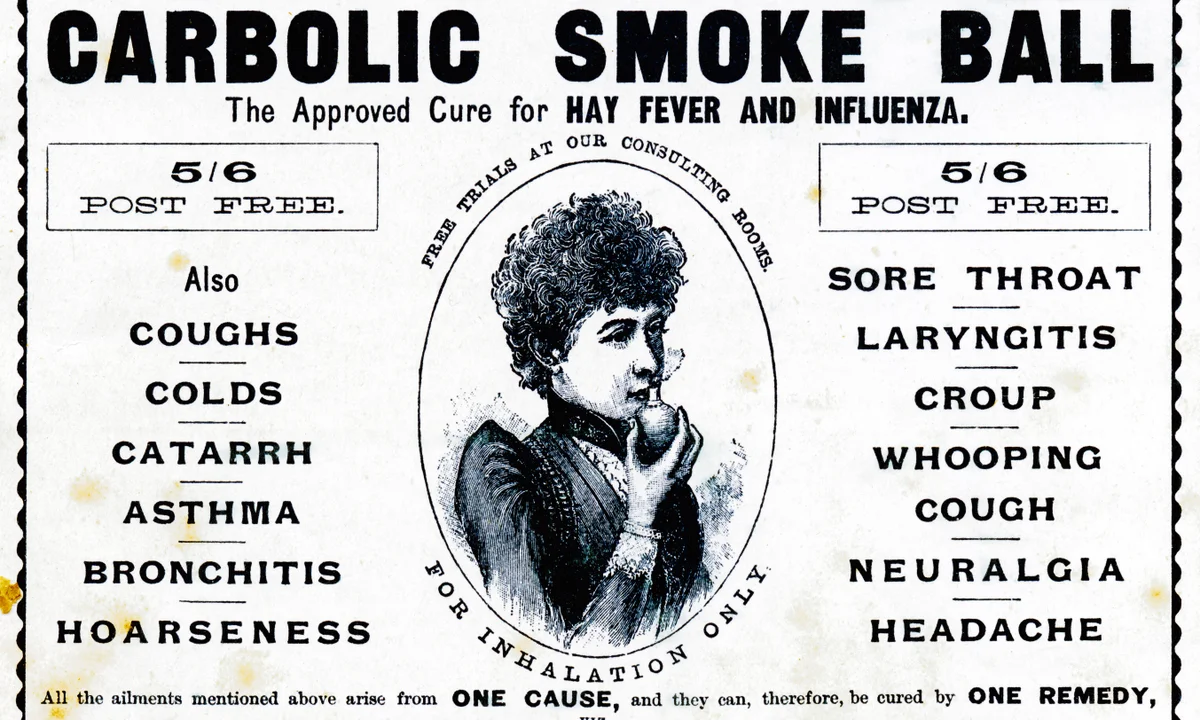Carlill v. Carbolic Smoke Ball Co. (1893)

3
SeptemberCarlill v. Carbolic Smoke Ball Co. (1893)
Carlill v. Carbolic Smoke Ball Co. (1893) - Case Summary
Facts: The Carbolic Smoke Ball Co. (Defendant) advertised that its product, "The Carbolic Smoke Ball," would prevent colds and influenza if used three times daily for two weeks. The advertisement promised a £100 reward to anyone who used the smoke ball as directed and still contracted influenza, backed by a £1000 deposit in the bank as proof of sincerity. The Plaintiff, Lilli Carlill, used the product as instructed but subsequently caught the flu. Her husband contacted the company to claim the £100 reward, but the company refused, leading to a legal dispute.
Issue: Was the language in the Defendant's advertisement a genuine promise or merely sales puffery with no intent to form a binding contract?
Judgment: The Court of Appeal held in favor of Carlill, ruling that the advertisement constituted a binding unilateral contract. The appeal was dismissed, and the Plaintiff was awarded £100.
Key Legal Principles Established:
- Advertisements as Offers: Advertisements can be treated as offers if they express clear intent to be bound upon specific terms, as demonstrated by the company's deposit of £1000.
- Unilateral Contract: The court determined that this advertisement was a unilateral offer to the public, which could be accepted by performance (i.e., using the smoke ball as directed).
- Acceptance by Performance: By using the product as instructed, the Plaintiff fulfilled the conditions of the offer, thereby accepting it.
- Consideration: The Plaintiff’s use of the smoke ball was deemed sufficient consideration, as it represented a detriment to her and a potential benefit to the company.
Significance: This case set a precedent in English contract law, particularly for unilateral contracts. It underscored that companies must exercise caution in their advertisements to avoid unintentionally forming enforceable promises. It also clarified foundational contract law principles like offer and acceptance, intention to create legal relations, and the necessity of consideration.
Importance for Contract Law: Carlill v. Carbolic Smoke Ball Co. is a foundational case in contract law, frequently cited for its explanation of unilateral contracts and offer and acceptance principles. The case is essential for understanding how advertisements can lead to binding contracts if they include clear terms intended to create legal obligations.
